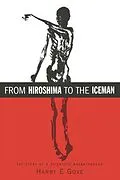From Hiroshima to the Iceman: The Development and Applications of Accelerator Mass Spectrometry presents a fascinating account of a breakthrough in science and the insights it has brought that would not have been possible without it. Involved since its invention, Harry Gove recounts the story of the development of accelerator mass spectrometry and its use as an ultrasensitive detection technique in many fields of science and the arts. A key advantage of the technique is that it requires only very small samples of material. The book explores the areas where the technique has increased understanding and provided solutions to problems, including the clean-up and storage of nuclear waste, the effects of the atomic bombing of Hiroshima, biomedical research, the settling of the Americas, and carbon dating of many precious artifacts. Objects dated include the Turin Shroud, the Iceman, the elephant bird egg, and the Dead Sea scrolls.
Autorentext
Harry E Gove (University of Rochester, USA)
Inhalt
Introduction; Historical Development of Accelerator Mass Spectrometry-1977; Historical Development of Accelerator Mass Spectrometry-1978-80; The Development of Tandem Electrostatic Accelerators; Instrumentation for Accelerator Mass Spectrometry; The Legacy of the Atomic Bombing of Hiroshima and Nagasaki; The Initial Peopling of the Americas; The American Indians, the Vikings, and Columbus; Nuclear Power, Nuclear Weapons, and Nuclear Waste; Carbon Dating the Shroud of Turin; The Iceman, the Dead Sea Scrolls, and More
